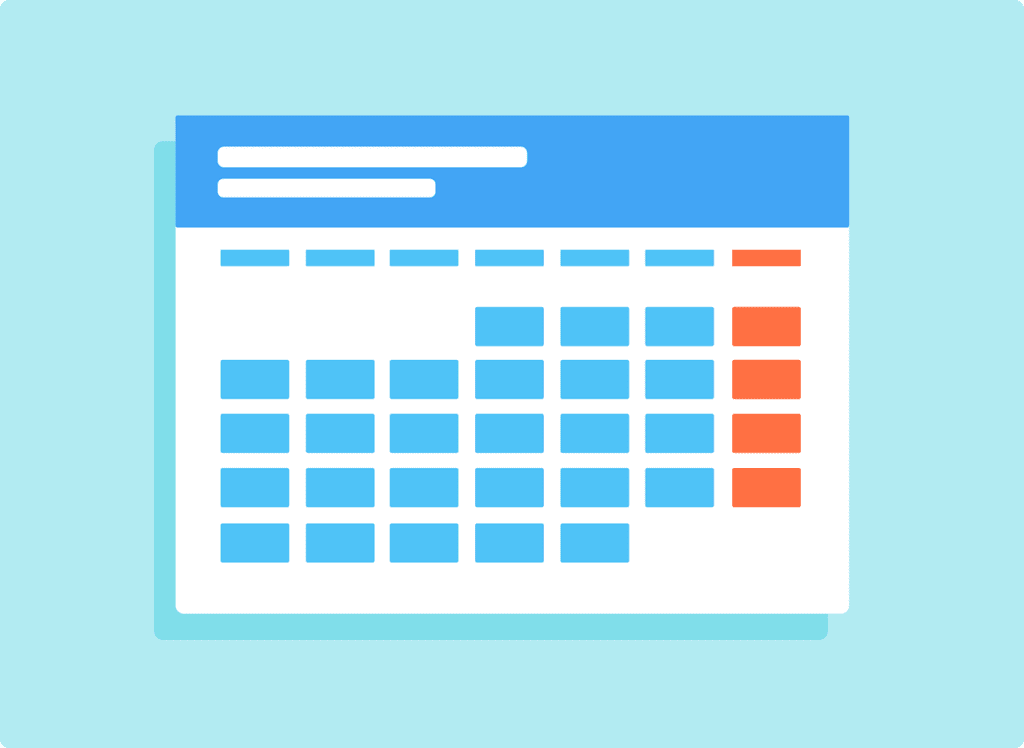
The early bird gets the worm. You snooze, you lose. Day late and a dollar short. There are a dozen different ways to say the same thing: don’t procrastinate! This tried and true advice holds up in almost everything, but it is especially important for MCAT prep and med school applications!
Whether you’re going MD or DO, we’ve all heard the advice to submit applications early. In fact, a good chunk of students submit their application the same day that it opens. Keep on reading below to find out why applying early is so commonly suggested, and how it can help your application cycle go smoothly!
1. The AAMC takes forever. Now I know we all tend to give the AAMC a hard time every once in a while, but this one (mostly) isn’t their fault! Between verifying grades and transcripts, double-checking volunteer hours, and the myriad of other things that go into your AMCAS, it can take anywhere between four and six weeks for the AAMC to go over your application and check for errors. That means that application you submitted in August actually isn’t getting seen by schools until September at the earliest.
2. Mistakes happen. Remember when we mentioned above that the AAMC double-checks your application for errors? Yeah, if they find a mistake they reject your application, send it back, wait for you to fix and re-submit it, and then they re-review it. Those four to six weeks from above? Let’s go ahead and potentially double that. It could be the difference between a relatively early application that gets accepted and a late one that has to fight for its spot at a school.
3. Admissions committees are made up of regular people. There are no robes, and certainly no secret meetings. Often they’re instructors at the school you’re applying to who volunteer (or are volun-told) to sort through applications in their spare time. While a good chunk of students tend to apply early, there’s always a massive flood of applicants at the tail end of the cycle. This means that if you’re one of the many applications trying to squeeze in at the end, your application might get lost in the flood and not receive as much time or attention from the person reviewing it!
4. Letters of recommendation take time. If you’re applying early (May/June) then that means you should’ve already been thinking about your letters of rec for the past few months (January to April) and potentially already asked a few professors to write one for you. This is very, very considerate of your professors. Similar to the admissions committee members above, professors are people too, and they know the students that made the effort and asked for a letter early as opposed to the dozens of students who will ask them for a letter right before the semester ends. Applying later in the cycle means you might be prepping your application over summer break when it’s much more difficult to get letters from faculty.
5. Two words: Rolling admissions. Let’s talk a little bit about the med schools themselves. Med school admissions are considered “rolling,” which means “first come, first served.” The longer you wait to apply, the fewer seats are left at med schools, which means pickier admissions committees. Let’s imagine a hypothetical: a med school has 100 open seats for new students. Student 1 has a moderate to above average GPA, has decent MCAT scores, applies as early as possible, and is accepted. Student 2 has the exact same stats/application as Student 1; however, now it’s late August and our hypothetical med school only has a handful of available seats for new students. Suddenly, Student Y is being judged much more harshly and is in a much more competitive situation due to the high demand for fewer spots. Student 2 doesn’t get into medical school. Don’t be like Student 2; apply early.
6. Secondary applications take time. Did you know that after you finish hours of writing your AMCAS application, you get the privilege of writing a secondary application for each school? Wooo! In all seriousness, there are two things to keep in mind. First, almost everyone receives a secondary application invite. Don’t get too excited and think you’re basically in, you still have to impress the admissions committee. Secondly, if you apply early you’re going to get those invitations for secondary applications early too! This means you’ll have even more time to edit, revise, and edit those secondaries over and over until they’re ready to submit.
7. Two more words: Rolling interviews. Early applications mean early secondaries, which means early interviews! Similar to rolling admissions, interview slots for schools fill up quickly on a first-come, first-served basis. If we’re late to the party, then a lot of the best dates and times will be taken, and you might have to settle with whatever is left. This means less flexibility for other things in your life like jobs or family…or going outside once in a while. Remember what that was like?
8. First impressions matter. Speaking of interviews, most will take place sometime between August and April. Assuming that you landed an interview even after submitting your application late, it’s important to remember that at this point the people conducting your interview have seen hundreds of students and will be comparing you against all of them. It’s hard to make a first impression if you’re not first! Get in there early, dazzle the admissions committee with your brilliance, and get your white coat!
9. Applying late is stressful. This one is a little bit of a mental health/stress check. Not only are there fewer seats available later on in the cycle, but if you DO manage to snag an interview after applying late, it’ll most likely be under stressful conditions from non-ideal travel times, rushed personal statements, and everything else that can cause your blood pressure to rise in high-pressure situations. Treat yourself with kindness, be proactive, and don’t put yourself through that!
10. You might have to retake the MCAT. Applying early lets you plan for “worst-case scenarios.” If you plan on applying in May/June, that most likely means that you tested sometime between January and March (or even late in the previous year). This gives you the opportunity to retake the MCAT if things go wrong on test day and you aren’t happy with the score you receive. If you’re applying late, chances are you spent the summer studying and took the exam between July and September. If you don’t hit your goal at that point, you’ll have to wait until January to retake the exam and possibly push your timelines back an entire year.
Ready to get your med school application in order? The fall is a great time to start preparing, so you’ll be on track for early application in May/June. With a prep plan tailored to your timeline and study style, Blueprint’s MCAT Courses will have you ready to crush your MCAT goals. And if you need to try before your buy, be sure to check out our free MCAT resources, including a practice test with analytics and a study planner you can personalize to your time frame and resources!
Search the Blog

Free Consultation
Interested in our Online MCAT Course, One-on-One MCAT Tutoring or Med admissions packages? Set up a free consultation with one of our experienced Senior Student Advisors.
Schedule NowPopular Posts
-
MCAT Blog What's on the MCAT?
-
MCAT Blog How to Review MCAT Full Lengths

Free MCAT Practice Account
Need great MCAT practice?Get the most representative MCAT practice possible when you sign up for our free MCAT Account, which includes a half-length diagnostic exam and one of our full-length MCAT practice exams.
Learn More







